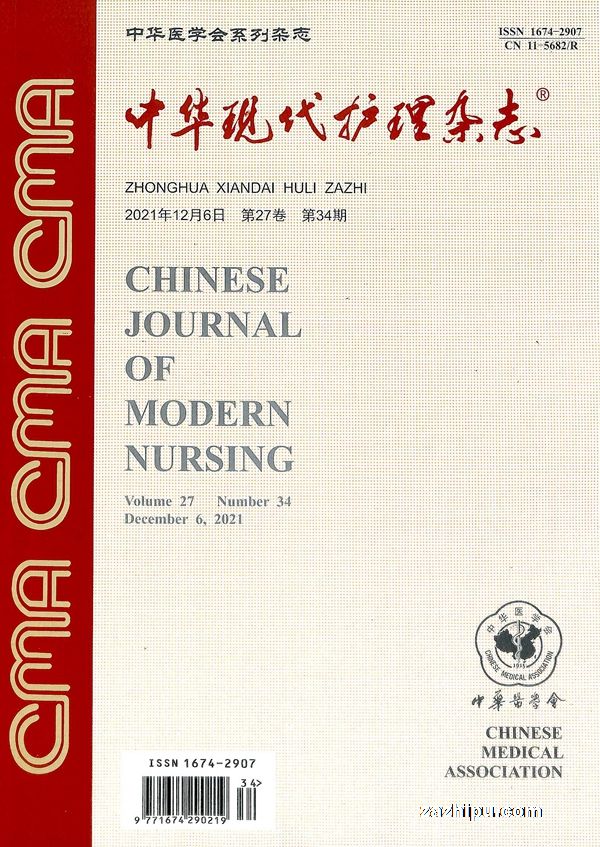Effects of holistic nursing management model in aerosol inhalation for children with mycoplasma pneumonia
引用次数: 0
Abstract
Objective To explore the effects of holistic nursing management model in aerosol inhalation for children with mycoplasma pneumonia. Methods From June 2018 to April 2019, this study selected 150 mycoplasma pneumonia children with aerosol inhalation in the Affiliated Hospital of Jining Medical University as subjects by convenience sampling. All of children were divided into observation group and control group with the method of random number table, 75 cases in each group. Control group carried out routine nursing, while observation group implemented nursing care with the holistic nursing management model. This study compared the compliance of aerosol inhalation among children between two groups. Perceived society support of children parents and quality of life of children between two groups were evaluated with the Perceived Social Support Scale (PSSS) and the Pediatric Quality of Life Inventory Measurement Models (PedsQL 4.0) respectively before and after intervention. Results The compliance rates of aerosol inhalation among children were 94.67% (71/75) in observation group and 82.67% (62/75) in control group with a statistical difference (P<0.05) . A total of 5 days after intervention, the scores of PSSS of children parents in observation group and control group were (73.25±10.08) and (66.36±9.96) respectively with a statistical difference (P<0.05) . There were also statistical differences in the scores of PedsQL 4.0 between observation group (74.14±10.77) and control group (65.64±9.55) 5 days after intervention (P<0.05) . Conclusions The holistic nursing management model is conducive to improving the aerosol inhalation compliance and quality of life among children with pneumonia as well as social support among children parents which has high application effects. Key words: Mycoplasma pneumohia; Child pneumonia; Aerosol inhalation; Holistic nursing management model整体护理管理模式在小儿支原体肺炎雾化吸入治疗中的作用
目的探讨整体护理管理模式在肺炎支原体患儿雾化吸入中的效果。方法2018年6月至2019年4月,选取济宁医科大学附属医院雾化吸入肺炎支原体患儿150例为研究对象。采用随机数字表法将患儿分为观察组和对照组,每组75例。对照组采用常规护理,观察组采用整体护理管理模式进行护理。本研究比较了两组儿童雾化吸入的依从性。干预前后分别采用感知社会支持量表(PSSS)和儿童生活质量量表(PedsQL 4.0)评估两组儿童父母感知社会支持和儿童生活质量。结果观察组患儿雾化吸入依从率为94.67%(71/75),对照组为82.67%(62/75),差异有统计学意义(P<0.05)。干预后共5 d,观察组与对照组患儿家长PSSS评分分别为(73.25±10.08)分、(66.36±9.96)分,差异有统计学意义(P<0.05)。干预后5 d,观察组患者PedsQL 4.0评分为74.14±10.77分,对照组为65.64±9.55分,差异有统计学意义(P<0.05)。结论整体护理管理模式有利于提高肺炎患儿雾化吸入依从性和生活质量,提高患儿家长的社会支持,具有较高的应用效果。关键词:肺炎支原体;儿童肺炎;雾化吸入;整体护理管理模式
本文章由计算机程序翻译,如有差异,请以英文原文为准。
求助全文
约1分钟内获得全文
求助全文

 求助内容:
求助内容: 应助结果提醒方式:
应助结果提醒方式:


